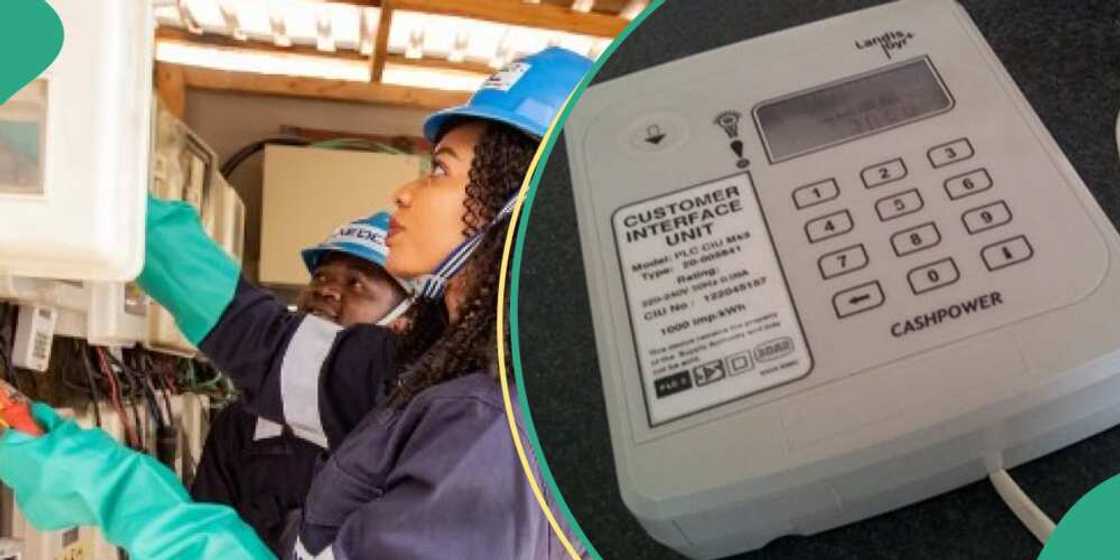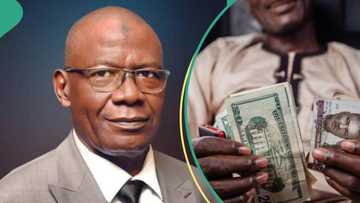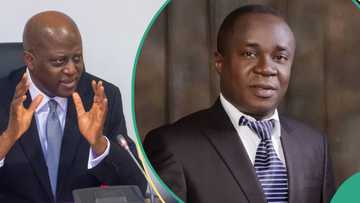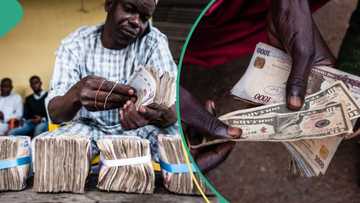FG, CBN to Light Up 4 Million Homes, Businesses With Nigerian-made Metres
- In continuance of its mass metering project, the FG and the CBN to finance 4 million metres
- According to a NERC report, the metres to be funded will be manufactured locally
- The FG says the move is aimed at closing up the huge metering gap in Nigeria
Legit.ng journalist Victor Enengedi has over a decade's experience covering Energy, MSMEs, Technology and the stock market.
The Federal Government, in partnership with the Central Bank of Nigeria, has announced plans to support the domestic production of four million prepaid meters.
This is contained in the '2022 Market Competition Report’ published by the Nigerian Electricity Regulatory Commission.
At the same time, the Federal Government has secured a loan of N120 billion from the World Bank to acquire 1.25 million prepaid meters at a reduced consumer price.

Source: UGC
PAY ATTENTION: Сheck out news that is picked exactly for YOU ➡️ find the “Recommended for you” block on the home page and enjoy!
Funding to commence after completion of Phase 0 of NMMP
According to the report, this project will be funded by the FG and CBN after the successful completion of Phase 0 of the National Mass Metering Programme (NMMP)
However, the report did not disclose the allocated budget for this initiative.
The report stated:
Following the completion of Phase 0 of the NMMP (scope is the rollout of about one million meters), the Commission has commenced engagement with relevant stakeholders to kick off Phase 1 of the NMMP.
Phase 1 is designed to provide FGN-CBN financing to DisCos to procure 4 million meters from Local Meter Manufacturers and Assemblers.
The NMMP constitutes a critical component of the Federal Government’s ongoing initiative to reduce Nigeria’s metering deficit and provide relief from the service-reflective tariff for electricity consumers in the country.
Electrification still a long way to go
Reacting to the government's gesture, Akin Taiwo, an Energy analyst, told Legit.ng via a telephone interview that even though giving four million more homes access to electricity is commendable, it still would not make much difference, given the gap that exists.
He said:
Nigeria faces a significant challenge when it comes to electricity access on a global scale, as approximately 92 million individuals out of its total population of 200 million currently do not have access to reliable power.
The persistent issue of insufficient electrical infrastructure in the country has had long-lasting and detrimental effects on Nigeria's industrial development, the growth potential of commercial enterprises, and the overall welfare of its citizens.
To expedite and expand the process of electrification, I recommend that the government consider investing in more cost-effective alternatives such as solar energy and natural gas.
Fund to be managed by Fund Manager
The power sector regulator further clarified that the meter acquisition fund, established in alignment with the December 2022 Tariff Order, is designed to alleviate the risk associated with financing outside the electricity market.
As outlined in the report, the fund will be under the centralized administration of a Fund Manager sanctioned by the Commission.
Its primary purpose will be to serve as a form of securitization, enabling long-term financing for the accelerated deployment of meters to expeditiously close the metering gap among end-users within the Nigerian Electricity Supply Industry.
It added:
Metering customers continues to be a top priority for NESI, given its far-reaching effects on enhancing customer satisfaction, precise energy accounting, bolstering revenue assurance, and contributing to the overall enhancement of NESI's financial sustainability.
During Phase 0 of the metering program, initiated in October 2020, the federal government successfully deployed approximately 900,000 complimentary prepaid meters to electricity customers, falling just short of the 1 million target.
Phase 1 of the program, as outlined by NERC, is set to provide metering solutions to around 6 million electricity consumers.
Significantly, gaining access to meters has remained a substantial challenge in Nigeria for an extended period, exacerbated further by the rising cost of prepaid meters subsequent to the Nigerian Power Regulatory Commission’s (NERC) approval.
NERC Warns Prepaid Meter Users to Update Before November 2024
In related news, Legit.ng reported that the NERC has issued an advisory to all prepaid meter users in Nigeria, urging them to update their meters before November 24, 2024.
This notice was conveyed to prepaid meter users through NERC’s official Twitter account on Tuesday, August 22, 2023, and emphasized the importance of adhering to the deadline.
NERC explained that the updating process would involve electricity consumers receiving two complimentary key change tokens from their respective electricity distribution companies (DisCos) to facilitate the necessary updates.
PAY ATTENTION: Stay Informed and follow us on Google News!
Source: Legit.ng





